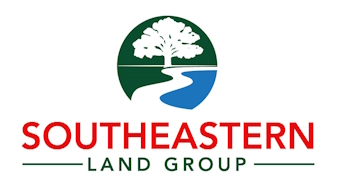
Good hunting leases might be one of the most difficult assets to find in the Southeast. Almost daily I get a call or message from a local hunter who is working hard to find a good property to lease. I also hear the stories from hunters whose leased land hasn’t turned out to be what they had hoped: the owner clearcut the timber, the lease rates keep going up, or the land gets sold and the lease cancelled, among other complaints. Whenever I bring up owning the land that you hunt, the suggestion is usually met with a reply like “I’d love to! But that down payment. And those monthly payments.” I hear you, but let me work through a real-life example with you of a friend of mine that recently bought some land whose annual mortgage payments are almost equal to what he would have spent annually on a lease.
The key to making this method work is simple: spread the cost of the land over a few people. The greatest challenge most people will have is finding 3-4 trustworthy friends that have the desire and means to partner up for a land purchase. But if you’re lucky enough to have those strong relationships, keep reading for how little your cost can actually be, as well as advice on how to structure the purchase to protect and to be fair to everyone involved.
Jim was like many of the people that I get calls from: looking hard for a lease and frustrated by what seemed like high prices, overcrowded hunt clubs, and not-so-promising future land management scenarios. Quality smaller properties (approx. 100 acres) were going for up to $4,000 per year, and were almost impossible to find close to Tallahassee. At the same time three friends from work were also looking, and each shared the same frustrations. One day Jim ran across a property for sale: 115 acres for $240,000. It was a great sportsman property – it had fields, woods, and a pond – located in an area known for good game flow only 45 minutes from home. He knew there was no way he could afford (nor his wife allow) a purchase of that size, but after running some quick numbers he realized that if he could get his three friends in on the purchase, they’d each be spending about what it would cost if they leased individually every year. The trade-off would be that they would have to share the property, but instead of throwing money away on a lease they would be building equity in a land investment. And they could spread the load of improving the property among the four of them.
The numbers looked like this:
At a purchase price of $240,000 financed for 20 years at 5%, a single buyer would have to put $48,000 down (at a 20% down payment), and then shoulder a monthly payment of $1,267. But if all four of them went in together, the down payment per person was only $12,000, and monthly payments were $317, or only $3,804 per year – less than some of the lease land they were looking at.
Jim and his friends decided the trade-offs were worth it for the opportunity to own their own property and do whatever they want with it, all while growing a land investment. They’ve actually found that it has strengthened those friendships as they’ve partnered to increase the quality of the game on the land, and made the place something greater than it was. 115 acres has been plenty of hunting space for them this season – they agree that you don’t really need hundreds of acres to have a good season, just the right property and group of people.
Like any partnership, the success of a venture is built on trust between the parties and a good legal structure that protects everyone involved. For land purchases of this nature, many professionals recommend that the partners create a Limited Liability Company (LLC) both to protect the individuals involved and to clearly outline the ownership interests and responsibilities of each member. LLCs can be easily created online these days, but for those unfamiliar with the company structure and process, it would be prudent to seek professional advice and assistance.
To recap: if you partner with a few friends, you can invest in hunting land for about the same annual cost as a lease. There are trade-offs to this arrangement, but it works for the right group of people. The keys to success are finding the right partners, finding the right property, and creating the right legal structure to protect everyone involved. Contact your local Land Agent today to talk more about how to make this purchase method work for you and what properties are currently on the market in your area.
Daniel Hautamaki is a Land Agent with Southeastern Land Group. He lives in Tallahassee, FL and serves land buyers and sellers in North Florida, Southeast Alabama, and Southwest Georgia.

